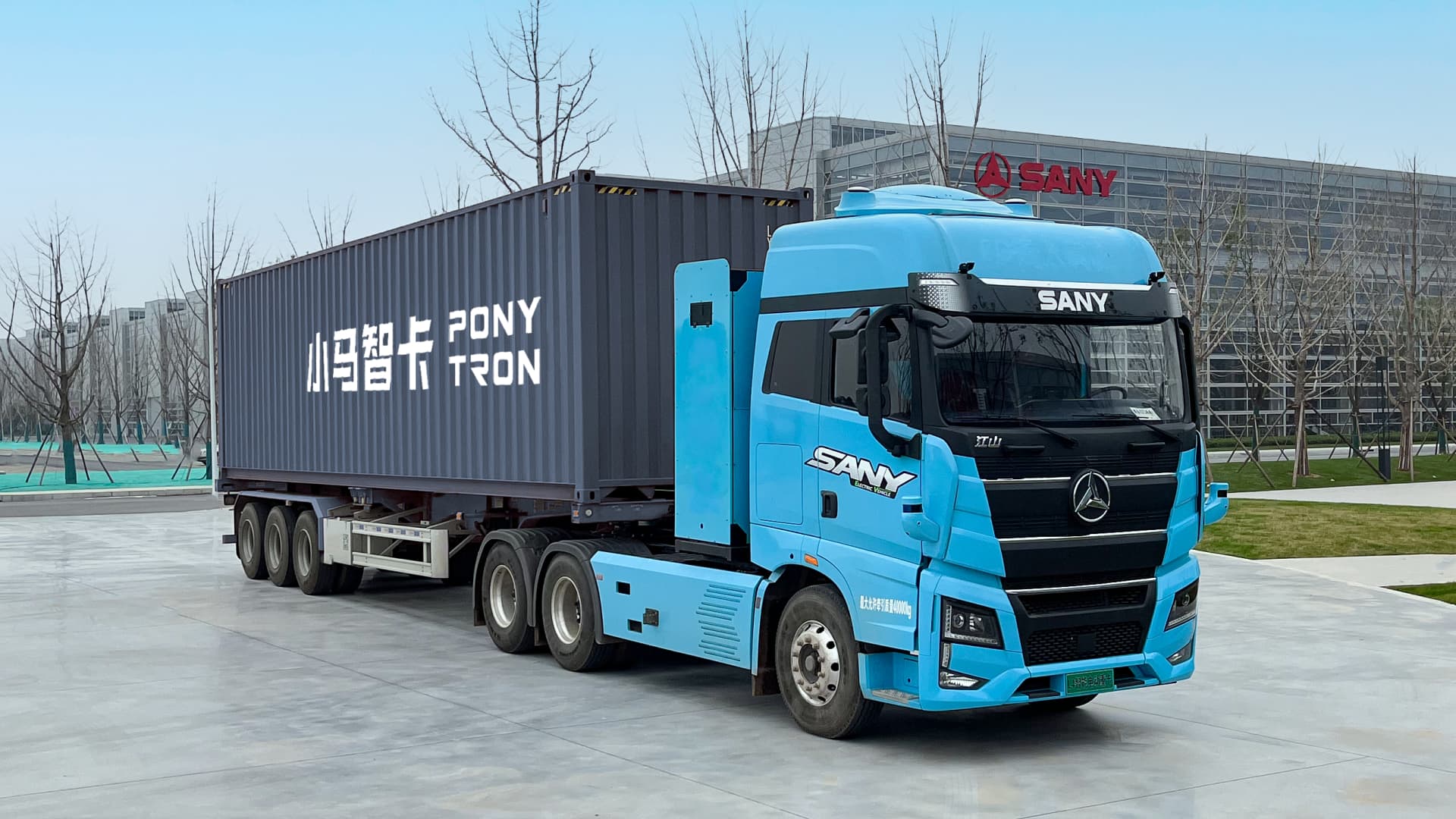BEIJING — Self-driving tech start-up Pony.ai announced Thursday it plans to mass produce autonomous driving trucks in China with equipment manufacturing giant Sany Heavy Industry.
Annual production is set to reach about 10,000 trucks “within a few years,” according to a press release. Small-scale deliveries are set to begin this year and next, with mass production due to start in 2024.
The trucks are slated to come with “Level 4” autonomous driving technology, which would allow full self-driving on highways and urban roads, according to Pony.ai. “L4” is part of an industry classification system that designates full self-driving under specific conditions.
Under current rules in China, the robotrucks won’t be able to operate fully autonomously.
Pony.ai said it only has testing permits in Beijing and Guangzhou for autonomous trucks. But the company said it expects to operate L4 trucks in China as regulations develop.
Pony.ai’s autonomous driving system uses the Nvidia Drive Orin chip, similar to several Chinese electric car companies that offer drivers assisted-driving technology.
Some, but not all, of the planned trucks will be “new energy vehicles,” a category that includes electric vehicles.
Pony.ai declined Thursday to share additional information about cost per truck and whether the trucks would only be available in China.
Sany has offices globally, while Pony.ai also operates in the U.S. The robotruck mass production deal is part of a strategic joint venture between Pony.ai and Sany Heavy Truck, a Sany subsidiary.
Analysts generally expect robotrucks to take off more quickly than robotaxis due to the more uniform nature of truck routes along highways. Daily truck drives typically last for hours versus far shorter taxi rides.
Pony.ai, which also operates robotaxis, claimed autonomous trucks can also save 10% to 20% of energy compared with traditional trucks.
Companies from Daimler to Walmart are testing self-driving trucks. Tesla has announced a partly autonomous electric truck called Semi that has run into production and delivery delays.
Walmart said in November that for about three months it had operated two self-driving trucks — with no safety driver — for 12 hours a day on a 7-mile route between two Walmart facilities in the U.S.
In China, automaker Geely announced plans last year to roll out an electric truck in 2024, with full autonomous driving capability in 2030.
— CNBC’s Arjun Kharpal and Frank Holland contributed to this report.
